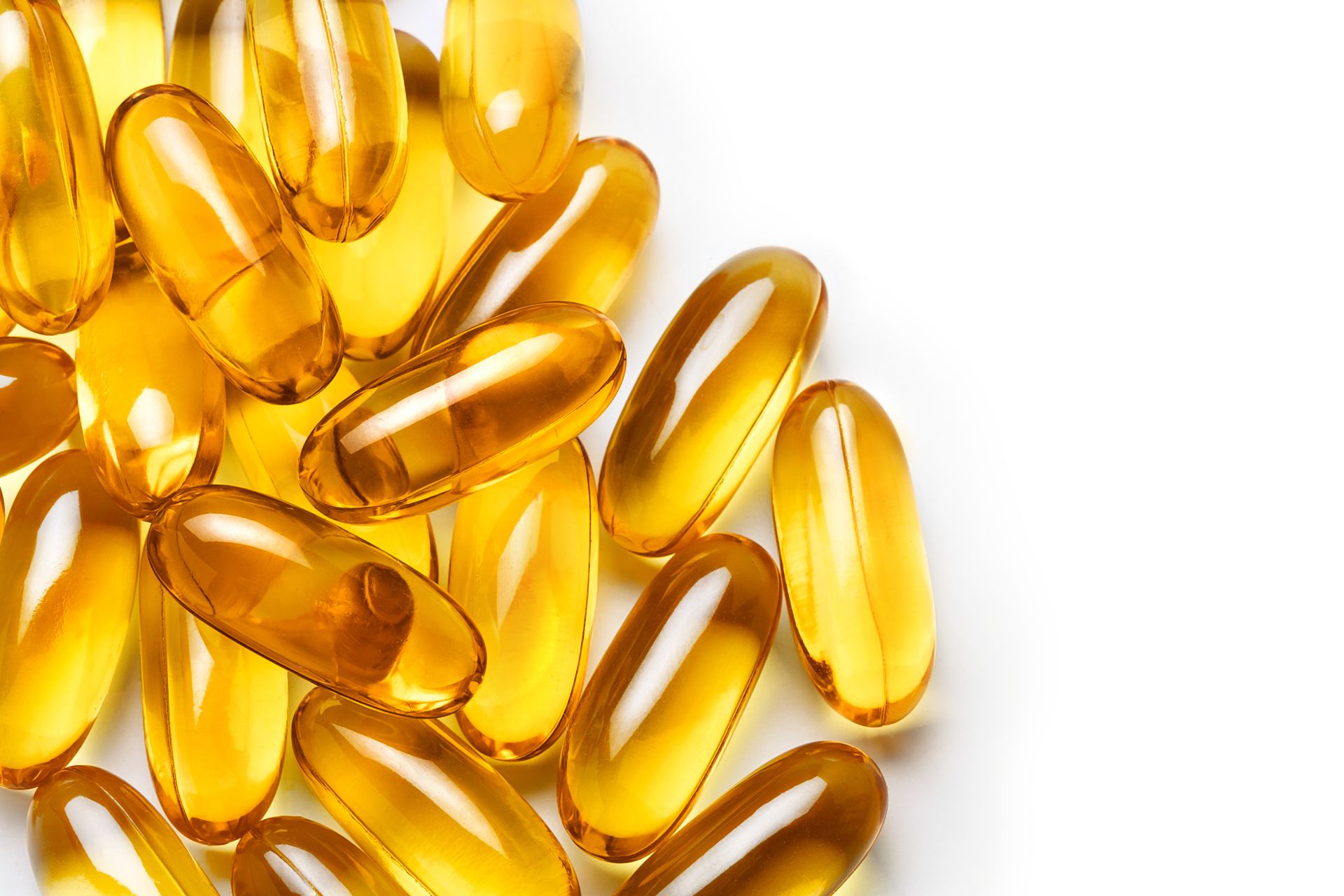Omega 3 acid and heart health - what are the relationships?

Cardiovascular disease is one of the most common causes of death. Advances in civilization have made our lives much easier, but many people have increased their risk of heart disease through the easy availability of heavily processed and unhealthy foods and decreased physical activity. One such civilization problem is the reduced consumption of fish and seafood, and thus the reduced availability of anti-inflammatory omega 3 fatty acids. Chronic inflammation is one of the most important causes of cardiovascular disease. Let's find out exactly how omega 3 fatty acids affect the heart and the benefits of additional supplementation.
How do omega 3 acids affect heart health?
Omega 3 acids (EPA and DHA) have anti-inflammatory effects and play a role in oxidative stress and improve cellular function through changes in gene expression. Numerous publications on the effects of omega 3 on heart health are available in medical databases. While not all of them clearly indicate benefits, there are still many very positive reports that suggest that it is worthwhile to take care of a sufficiently high supply of these fatty acids in the daily diet.
What specifically can omega 3 fatty acids help with?
- Consuming 2 grams of EPA and DHA daily helps maintain normal blood triglyceride levels;
- EPA and DHA consumed at a total of 3 g per day help maintain normal blood pressure;
- EPA and DHA acids as low as 250 mg per day contribute to normal heart function.
Below we will analyze by what mechanisms omega 3 fatty acids support the cardiovascular system, as well as scientific findings.
Effects on inflammation
Markers of inflammation, such as C-reactive protein (CRP), TNFα and certain interleukins (IL-6, IL-1), correlate with an increased likelihood of a cardiovascular incident. Inflammatory indicators, such as IL-6, stimulate CRP synthesis in the liver, and elevated CRP levels are associated with an increased risk of developing cardiovascular disease.
A study of 89 patients showed that those supplementing with omega 3 fatty acids (EPA and DHA) had a significant reduction in CRP levels with high sensitivity (66.7%). The same study also showed a significant reduction in titers of antibodies to heat shock protein 27 (57.69%), which has been shown to be overexpressed in myocardial cells when blood flow returns after a period of ischemia and could potentially have a cardioprotective effect.
Effects on epigenetics
In a study in which human blood samples were tested, EPA and DHA intake altered the expression of as many as 1040 genes, including a reduction in the expression of genes involved in inflammatory and atherogenesis-related pathways, such as nuclear transcription factor κB (NF-κB) signaling, eicosanoid synthesis, scavenger receptor activity, adipogenesis and hypoxia signaling.
Other cardiac benefits noted in studies
Studies have noted some benefits of omega 3 supplementation after myocardial infarction. EPA and DHA have been linked to a reduced risk of recurrent coronary events and sudden cardiac death after acute myocardial infarction, as well as a reduced incidence of heart failure events.
EPA supplementation by patients with impaired glucose metabolism showed a significantly lower incidence of major coronary events of 0.78 compared to patients with impaired glucose metabolism not taking EPA. This shows that EPA significantly reduces the risk of major coronary events.
EPA and DHA supplementation has been shown to improve endothelial function in patients with peripheral artery disease by reducing plasma soluble thrombomodulin levels (median 33.0 µg/l -> 17.0 µg/l) and improving flow-dependent dilation in the brachial artery (6.7% -> 10.0%). Patients who had peripheral artery disease and received EPA supplementation had a significantly lower risk of major coronary incidents compared to patients who did not take EPA.

Which omega 3 supplements to use for heart health?
In this case, it is definitely advisable to choose supplements that are a combination of EPA and DHA, and it is preferred that EPA be more than DHA. Eicosapentaenoic acid has a greater effect on anti-inflammatory processes, and this is one of the most important mechanisms by which omega 3s support the cardiovascular system.
When you choose Apollo's Hegemony Ultra Fish Oil supplement, with each capsule you provide as much as 500 mg of EPA and 250 mg of DHA. For this supplement, there are also test reports on the TOTOX index (determines the freshness of the fat) and fatty acid profile (confirms that the capsules' contents match the information on the label).
What about dosage? Most heart benefits are revealed at doses of 2 grams per day and above of total EPA and DHA, with an upper limit of 5 grams per day. In the case of the AH Ultra Fish Oil supplement, the optimal daily dose is 3 capsules.
Sources:
 ⮜ Previous article
⮜ Previous article
Magnesium - what is it and what properties does it have?
 Next article ⮞
Next article ⮞